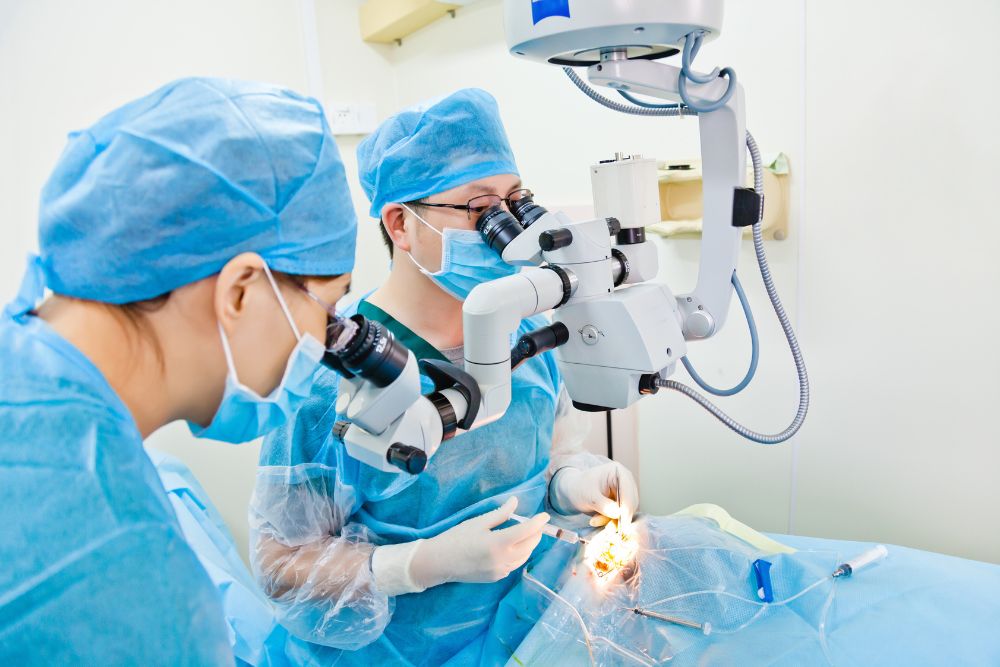Understanding the Surgical Side of AMD: What Patients Should Know

Age-related macular degeneration (AMD) is a common eye condition that affects people in various ways. Some patients may only need regular monitoring, while others might receive eye injections. In more severe cases of AMD, surgery may be necessary. Although eye surgery can seem intimidating, it's usually not painful and can play a crucial role in preserving and protecting vision.
When Does AMD Require Surgery?
Surgery isn't typically the first line of treatment for AMD; it's usually reserved for patients with wet AMD. Wet AMD is a severe form of the condition characterized by abnormal blood vessel growth under the retina or macula. These blood vessels can leak or cause damage to the macula, leading to vision loss. Surgical treatment may also be utilized in patients with dry AMD when other treatments aren't effective. Dry AMD is the most common type of the condition, characterized by the presence of drusen, small yellow deposits under the retina, that can lead to vision issues.
Additionally, a retina specialist may recommend surgery to treat complications of AMD, such as bleeding, retinal detachment, or vitreomacular traction. A retinal detachment is a serious, vision-threatening condition that occurs when the retina separates from its usual position. Vitreomacular traction (VMT) occurs when the vitreous gel, a jelly-like substance in the eye, pulls on the macula, the central part of the retina responsible for sharp, detailed vision.
AMD Surgical Procedures
There currently isn’t a cure for AMD, but surgery can help preserve eyesight and treat complications that can cause vision loss. Common surgical treatmentsfor AMD include:
Vitrectomy: During a vitrectomy, an AMD surgeon removes the vitreous gel from the inside of the eye and replaces it with saline, silicone oil, or a gas bubble. This procedure facilitates the AMD surgeon's access to and repair of a damaged retina, as well as the removal of blood or scar tissue.
Photodynamic therapy: This treatment utilizes a laser and a special medication that works when exposed to a specific type of light, creating blood clots and helping to seal abnormal blood vessels.
Laser photocoagulation: During this procedure, a retina surgeon uses a laser to seal or destroy abnormal blood vessels or tissue in the retina.
Macular translocation: In this surgical procedure, the macula is moved to a different location on the retina.
How to Get the Ideal Treatment Plan
The most suitable treatment for AMD varies from person to person. Factors, including the severity of the condition and any complications, can impact treatment plans. Additionally, the beginning stages of AMD typically don't cause noticeable symptoms, so some patients don't even know they have it until it has progressed. The sooner you're diagnosed with AMD, the better your vision outcomes will be, so it's crucial to see a retina specialist regularly, especially if you're over the age of 50. They can review all available treatment options with you and create a customized treatment plan that offers the best chances of protecting and preserving your vision.
Schedule an Appointment with a Macular Degeneration Specialist
AMD can be a serious retinal condition that requires surgery to manage. At Palmetto Retina Center, our retina specialists and expert AMD surgeons can effectively diagnose and treat conditions like AMD in patients throughout South Carolina, including Columbia, Orangeburg, Sumter, Florence, and Aiken. Contact us today to schedule an appointment.
